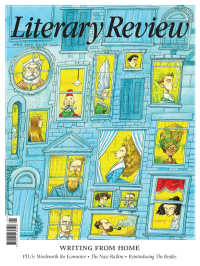Adrian Turpin
Unsafe Harbour
Amnesty
By Aravind Adiga
Picador 256pp £16.99
In January 1976, the Australian prime minister Malcolm Fraser declared an amnesty for illegal immigrants. It is hard to imagine such a thing happening in today’s hostile environment down under, but that doesn’t stop the protagonist of Aravind Adiga’s new novel taking hope from historical precedent.
Hope is the only thing Dhananjaya has left after overstaying his student visa in Sydney. Returning to his home country of Sri Lanka is unthinkable and there is no route to becoming an Australian citizen. In this state of limbo, ‘Danny’, as he has reinvented himself, spends his evenings stacking shelves in the Sunburst grocery store, where he sleeps in a windowless stockroom.
By day, Danny straps on an astronaut backpack – a nod to the alien environment he must traverse – and cleans apartments in the Sydney suburbs, all the time trying not to draw attention to himself. Even his Vietnamese girlfriend, Sonja, doesn’t know he is in the country illegally (but

Sign Up to our newsletter
Receive free articles, highlights from the archive, news, details of prizes, and much more.@Lit_Review
Follow Literary Review on Twitter
Twitter Feed
‘The Second World War was won in Oxford. Discuss.’
@RankinNick gives the question his best shot.
Nicholas Rankin - We Shall Fight in the Buttery
Nicholas Rankin: We Shall Fight in the Buttery - Oxford’s War 1939–1945 by Ashley Jackson
literaryreview.co.uk
For the first time, all of Sylvia Plath’s surviving prose, a massive body of stories, articles, reviews and letters, has been gathered together in a single volume.
@FionaRSampson sifts it for evidence of how the young Sylvia became Sylvia Plath.
Fiona Sampson - Changed in a Minute
Fiona Sampson: Changed in a Minute - The Collected Prose of Sylvia Plath by Peter K Steinberg (ed)
literaryreview.co.uk
The ruling class has lost its sprezzatura.
On porky rolodexes and the persistence of elite reproduction, for the @Lit_Review: